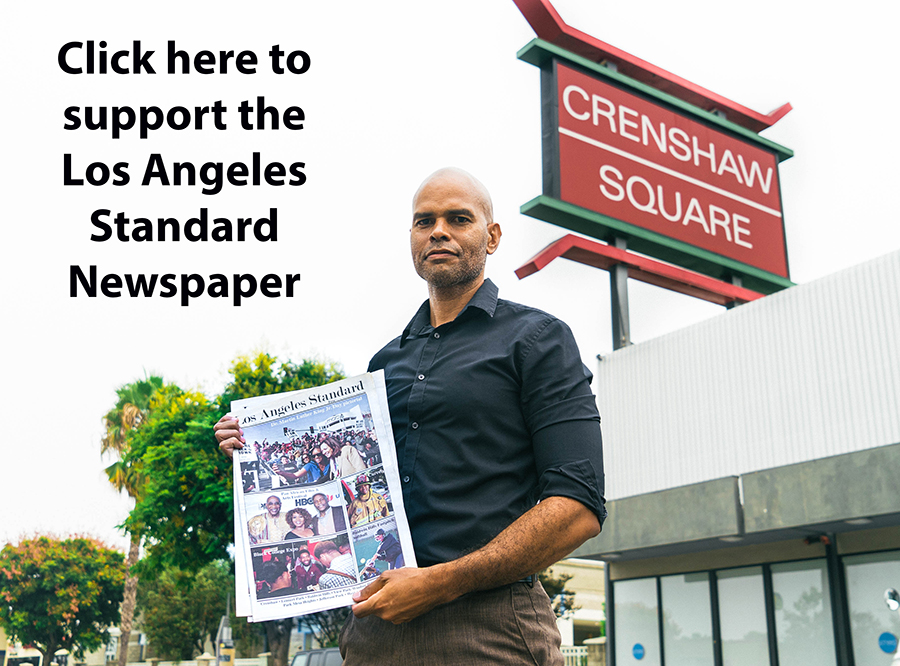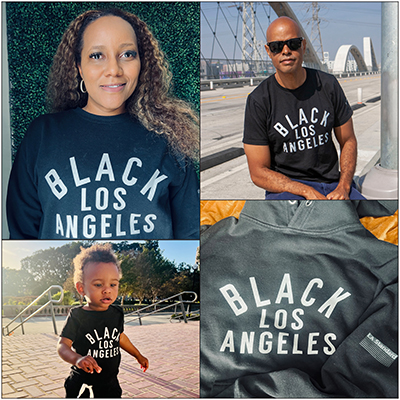Cedars-Sinai, BlackDoctors.org, the California Black Women’s Health Project and the Morehouse School of Medicine participated in a recent discussion that addressed the high rate of pregnancy-related deaths among Black mothers.


By Megan Reed
Health experts participated in a recent discussion that addressed the high rate of pregnancy-related deaths among Black mothers. The panelists included Christina Harris, M.D., vice president and chief health equity officer at Cedars-Sinai, who moderated the discussion; Natalie D. Hernandez, executive director of the Center for Maternal Health Equity, Morehouse School of Medicine; Kimberly D. Gregory, M.D., MPH, Director Division of Maternal Fetal Medicine, Cedars-Sinai; Sarah J. Kilpatrick, MD, Phd, chair, Department of Obstetrics and Gynecology, Cedars-Sinai; and Sonya Young Aadam, CEO, California Black Women’s Health Project.
The one-hour virtual program, “Embracing Our Community: LIVE! Advancing Black Maternal Health,” which can be viewed on YouTube, focused on why Black women are three times more likely to die from pregnancy-related causes than White women--a disparity that transcends education, socioeconomic status, and even pre-existing health conditions. They also discussed how healthcare professionals, together with Black birthing mothers and their families, could help foster positive birth experiences and outcomes.
A report from the World Health Organization stated that compared to other wealthy industrialized nations, the U.S. has the highest mortality rates at 23.8 per 1,000 women, and that this risk is almost three times higher for Black women.
“The United States is the only high-resource country where the rates of maternal mortality are going up,” Harris said.
Typically the more educated and higher income the people are, the lower the rates of morbidity or mortality. But that is not the case for Black women.
“When you compare the most educated Black women compared to White women, those rates are in the order of five times more likely (for Black women mortality),” Harris said.
“This has been happening for a very long time,” Hernandez said. “We’ve seen inequalities in perinatal outcomes that have been occurring over the last 100 years.
“We know a lot about the structural determinants of health. Where we work, live, play, contribute to a lot of the inequities that we see or the resources that people need access to. We know that adverse childhood experiences, trauma, and stress contribute to these maternal mortality rates. A lot of that is related, particularly for Black and Brown populations, to racism. Whether it’s structural, institutional, we know that’s at the crux of what’s happening around the Black maternal health crisis.”
A survey of 90 women across the country who nearly died during child birth showed that their voices were going unheard.
“They said that the number one thing that happened was that people weren’t listening to them,” Hernandez said.
“The No. 1 thing as a health care provider or anyone in the healthcare system, with any patient is listening,” Kilpatrick said. “There’s absolutely no doubt listening has fallen off as the No. 1 thing. And there is likely no doubt that listening is less well done of minority populations. So I do think that there’s discussion of that now.”
Conditions such as diabetes, hypertension, and obesity have increased among Black women, leading to complications, including preeclampsia, higher cesarean rates, and an increased risk of bleeding disorders.
“A lot of the symptoms that women have are considered typical pregnancy symptoms, when in fact some of them are also common symptoms of pretty significant morbidity or mortality,” Gregory said. “As physicians, we need to learn to listen to and understand the differences. Over time, the incidences of chronic diseases has gone up. And that is largely contributed by the fact of the social determinants of health. Diabetes has gone up, hypertension has gone up, obesity has gone up, and all of those play a part in increasing the complications related to preeclampsia. It increases the risk of cesarean, and we know that cesarean increases the risk for bleeding disorders. Black women having higher rates of those conditions is clinically contributing to the increased morbidity and mortality that we’re seeing.”
The panelists stressed the need to eliminate racism in healthcare as well as in the daily lives of Black families, because of racism’s negative impact on health outcomes.
“What is most astounding about that is that just really emphasizes the lifelong impact on living in a culture that has systemic racism and other aspects of racism through your entire life,” Kilpatrick said. “So even if you have resources, and we can take Serena Williams as a perfect example, she didn’t die but she nearly did. Everybody would agree that she has plenty of resources and should be getting the best possible care. But she’s still a Black woman who has lived in the United States for her whole life and so that impact of long-term stress is a huge issue in terms of predisposing women of color for a higher risk of poor health outcomes. Not just maternal mortality.”
Systemic problems need systemic solutions that go beyond pregnancies.
“We’re always trying to address it when a woman is pregnant, and we really need to focus on women’s health prior to conception,” Hernandez said. “We can’t solve years of comorbidities and stress and racism during the perinatal period. Things have to happen before that. In terms of structural things, it’s addressing a lot of structural political factors, including housing, transportation, food insecurity. We have an epidemic of gun violence. That puts a lot of trauma on different birthing communities.”
Members of the California Legislative Black Caucus, along with California Attorney General Rob Bonta, Assemblymember Lori Wilson (D-Suisun City), and Assemblymember Dr. Akilah Weber (D-La Mesa) introduced AB 2319 aimed to reduce the alarming and disproportionate maternal mortality rate of Black women and other pregnant persons of color by ensuring successful implementation of Senate Bill 464, the California Dignity in Pregnancy and Childbirth Act of 2019.
“I think that’s a step (speaking about SB 464),” Kilpatrick said. “I don’t think that’s the fix, but it is a step. At Cedars we’ve done that plus other trainings. At least it gets people who aren’t already thinking about this beginning to understand how to acknowledge one’s own implicit bias and recognize it.”
Along with systemic problems in the health care system, there have been issues with interpreting the data when it comes to Black women.
“For so long we have not looked at our data to really understand the experience of the Black woman,” Harris said. “At Cedars and as I talk to other peer institutions, we are starting to really interrogate our data to understand the differences in experiences. And when we see a divergence in the data, we believe it. We don’t try to explain it away. We go to the patient to really understand.”
After reviewing the data, it was clear that there was an issue with the use of low-dose aspirin for the prevention or reduction of preeclampsia.
“We were doing terribly,” Kilpatrick said. “We were not treating enough women and we had a huge disparity with under treating Black women. Being Black is one of the risk factors for increased risk in preeclampsia, plus other things. So they should be treated with low-dose aspirin during pregnancy.
“We rechecked the data a year later and we completely eliminated the disparity between treatment of Black and White women.”
Black maternal health has become a nationwide topic, with many community service organizations supporting this movement and with Black Maternal Health Week, which is held in April.
“One of the things that I can certainly say with pride and excitement about the future is that the groundswell of information, and experiences, and stories, and interventions, and prevention models, and things that we see across the nation, and Black Mamas Matter Alliance and the work that they’re doing is so powerful,” Aadam said. “In California, from San Diego to Sacramento, where we experience most of our work at Californian Black Health Project, we see some awesome community-defined practices that are happening to support more sacred and joyous birth for Black women and I have great appreciation for the investments that the state of California is making as well as the work that Cedars and other hospital systems that have opened up their care to include better interpretation of community based prevention models and community organizations.”
To view the entire virtual program, visit Cedars-Sinai’s YouTube channel and search for “Advancing Black Maternal Health.”









